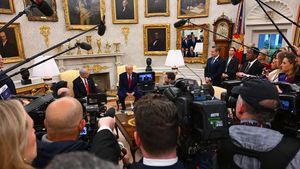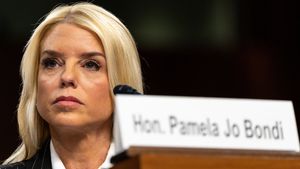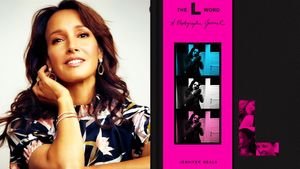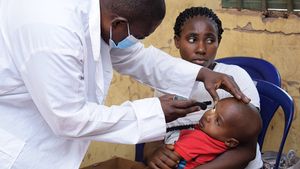When Felice Marano — a diversity consultant, avid world traveler, and advocate for yoga, wellness, the LGBTQ+ community, and people living with HIV — was first diagnosed with HIV himself a few years back, he noticed something missing from the conversation: Love.
 photo by Malin Bray
photo by Malin Bray
“The idea of love…for me, everything started because I started to consider all the concepts around HIV in general and like, diseases have energy,” says Marano. “If we are energy and everything is energy…. What kind of energy and attitudes do we send toward [people living with HIV]? It’s just fear and stigma and hate. And so I started to realize that, even in a medical aspect, on a scientific level, even on all the sides of the disease — if we want to start creating a new narrative and creating more opportunities to cure and to heal, it’s time we speak about love as a way of starting to switch the concepts and the narrative that we have; to start sending more understanding and humanity and love.”
Marano explains that while there’s no shortage of clinical and medical information about HIV available online, it can be very difficult to find emotional support and human connection — which he says can be very disheartening, even dangerous, for those who have just been diagnosed. “I realized that there’s a lot of things online…I can find anything I want about HIV when it comes to everything on a scientific level. And that’s the type of help we get.”
One powerful tool that Marano utilizes to combat stigma and spread his message is social media. If you visit his Instagram page
(@borntobelove.community) you’ll see the word HIV large and bold on many posts — a clear message that carrying the virus is nothing to be ashamed of.
 photo by Malin Bray
photo by Malin Bray
Marano also doesn’t shy away from using body- and sex-positivity to help spread his message and often shares sexy or sensual photos of himself on his page. He says he does so not only as an act of self-love but “so that maybe the topic becomes a little bit ‘sexier,’ and maybe more people will get interested about it.”
But just a few years back, before he got to this beautiful point of openness and inspiration, Marano felt much like countless other young people must feel when they hear the words, “I’m sorry, the results are positive.” He felt alone and afraid.
“I started to share my story [publicly] like two years ago, so not a long time,” recalls Marano. He explains that he was at a business convention and at one of the workshops people were invited to come onstage and share a personal story. Marano says something came over him and he was compelled to tell his own story for the first time in that room of strangers.
“In that moment — I’d never shared my story before on a large [platform], I just shared with family and friends — I felt a huge call, kind of a responsibility, like, Oh my god, I feel I have a story to share. So I went onstage, almost crying, and the first thing I was thinking was, Oh my God, I’m think I’m going to have a heart attack.’
 photo by Malin Bray
photo by Malin Bray
 photo by Malin Bray
photo by Malin Bray
However, he explains somehow the moment seemed like it was about more than just himself and his own story.
“I felt kind of like a tool for something bigger,” Marano says. “Like this bigger energy, this bigger thing, it moves us sometimes to do things. The life I have, traveling around the world, it gave me access to certain ways of living life and concepts and ideas, and it was kind of like, Man…I want to share this message.”
Despite his openness these days about his own diagnosis, Marano advises others living with HIV to only disclose to someone when you feel 100 percent comfortable, and not to ever feel pressured to “come out.” He says you must remember to protect and preserve your own mental and emotional health.
“No matter how much you dig into the healing process of all of this, it’s kind of like — for me, at least — [disclosing] is always a hard thing to deal with,” says Marano, and admits that it can still be painful sometimes when telling a new person or group of people that he is HIV-positive.
“First of all, I think don’t everybody should always [disclose their status]. I think the most important thing we should do is really spend some time with ourselves…to understand how we really feel and what we really need.”
He recalls that sharing his status too soon with too many people became an emotional burden for him in the beginning, so he learned to be more selective of who he told and when. “I realized that the more I was disclosing… the more I was having to process emotionally, like I was getting all their worries and their problems, and it became heavy.”
 Photo by Malin Bray
Photo by Malin Bray
In addition to his online Born to Be Love community, Marano is taking his HIV advocacy a step further and has developed an online course for people living with HIV. Rather than just offering up the usual medical and scientific information, Marano’s course will focus on emotional health and community. He says he wants to create a space where people come first, not their diagnoses.
One thing that has helped keep Marano emotionally well over the years and that brings him much joy is the “nomadic lifestyle” he has enjoyed over the last 12 years. Born in in a small town near Naples, Italy, Marano explains that his passion for traveling the globe runs much deeper than just wanting to visit popular tourist destinations.
“I go to a place, I learn the language, I adapt to the culture, and I try to really grow in that mindset…. To me, the mission of my life is traveling and discovering the world.”
 CLICK HERE TO LEARN MORE ABOUT FELICE'S ONLINE COURSE FOR PEOPLE LIVING WITH HIV.Cover photo by Fede Marinic
CLICK HERE TO LEARN MORE ABOUT FELICE'S ONLINE COURSE FOR PEOPLE LIVING WITH HIV.Cover photo by Fede Marinic
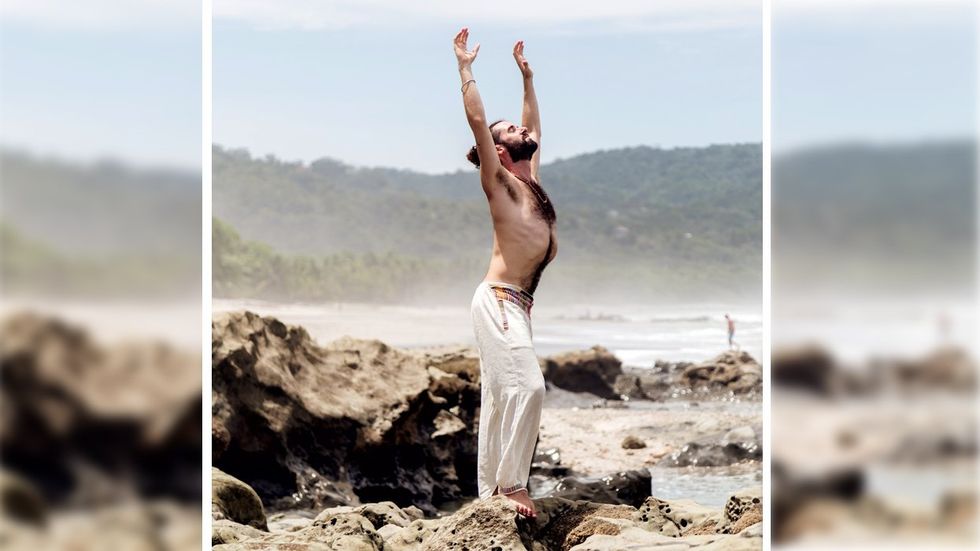
 photo by Malin Bray
photo by Malin Bray photo by Malin Bray
photo by Malin Bray photo by Malin Bray
photo by Malin Bray photo by Malin Bray
photo by Malin Bray Photo by Malin Bray
Photo by Malin Bray



























































